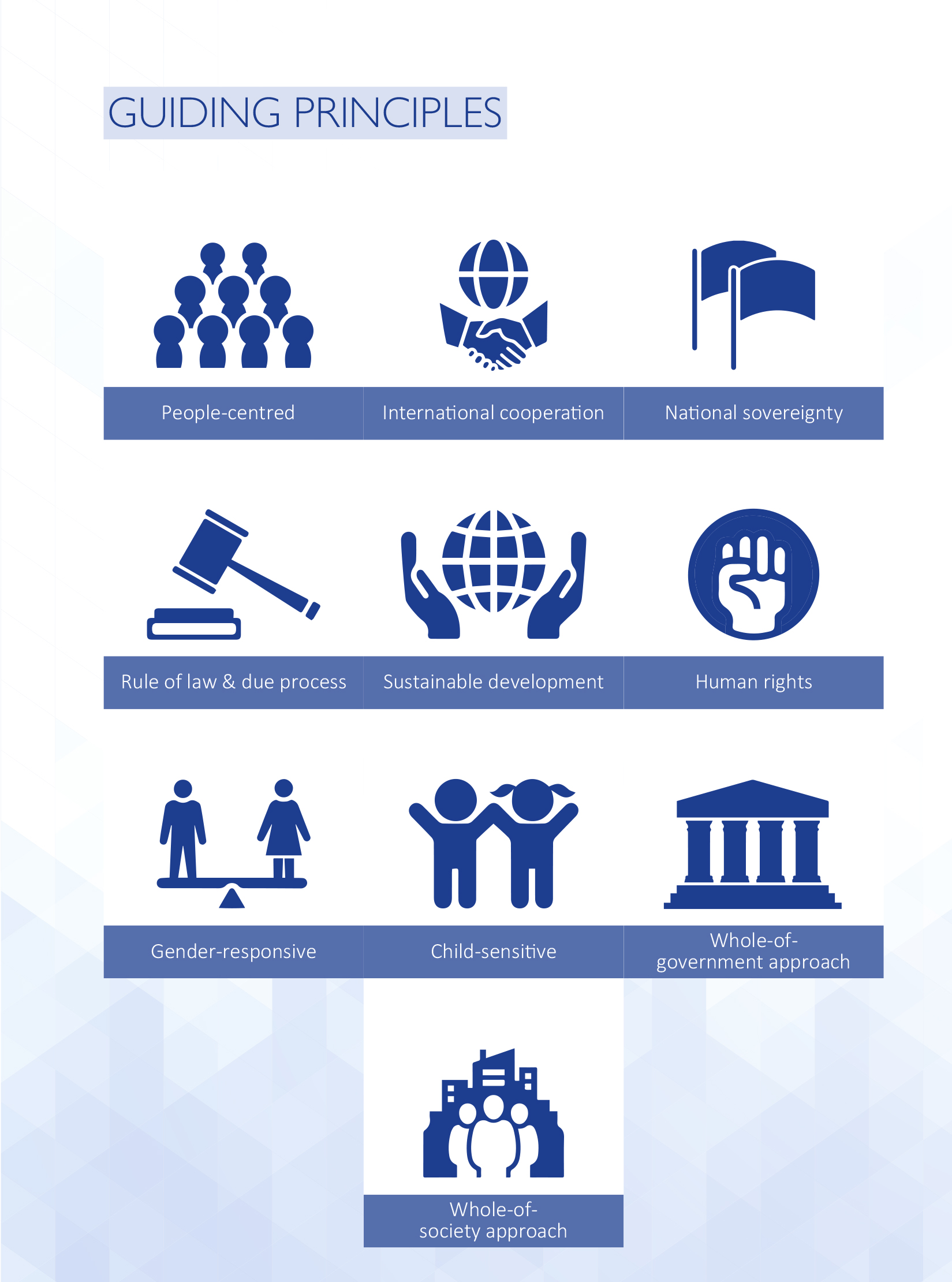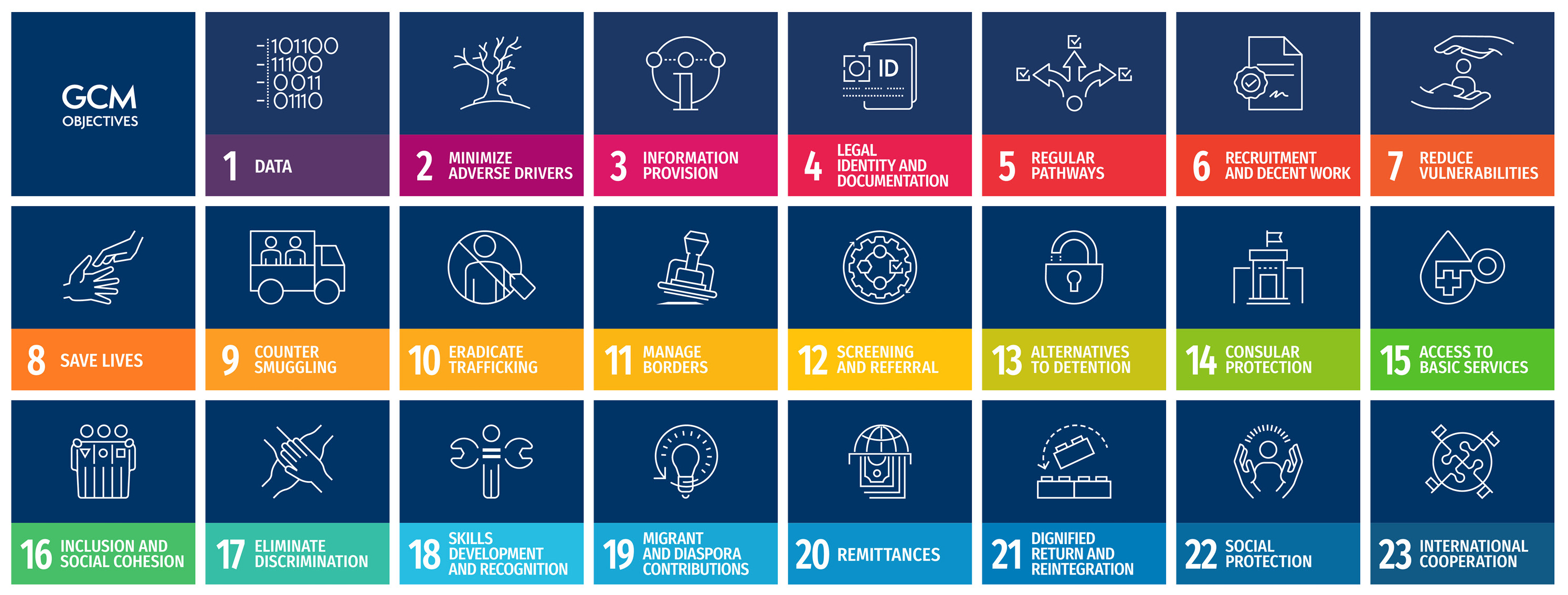-
Who We Are
WHO WE AREIOM is the leading inter-governmental organization promoting humane and orderly migration for the benefit of all, with presence in over 100 countries. IOM has had a presence in Bangladesh since 1998.
About
About
IOM Global
IOM Global
-
Our Work
Our WorkAs the leading inter-governmental organization promoting humane and orderly migration, IOM plays a key role to support the achievement of the 2030 Agenda through different areas of intervention that connect both humanitarian assistance and sustainable development. IOM's objective in Bangladesh is to promote migration that protects and benefits migrants and their societies.
Cross-cutting (Global)
Cross-cutting (Global)
- Data and Resources
- Take Action
- 2030 Agenda
Bangladesh United Nations Network on Migration (BDUNNM)
Background
Adopted in 2018, the Global Compact for Safe, Orderly Regular Migration (GCM) is the first inter-governmentally negotiated agreement prepared under the auspices of the United Nations, covering all dimensions of international migration in a holistic and comprehensive manner. It is a non-binding document, framed in a way consistent with target 10.7 of the 2030 Agenda for Sustainable Development in which Member States committed to cooperate internationally to facilitate safe, orderly, and regular migration.


About BDUNNM
In Bangladesh, the UN country team established the first national Network on Migration in July 2019, to ensure coordinated UN Country Team-wide support to the Government of Bangladesh (GoB) on migration related interventions contributing to the implementation, follow up and review of the GCM. In 2019, based on contextual priorities, The two Technical Working Groups (TWGs) on Labour Migration (LM) and Counter-Trafficking in Persons (CTiP) were established to support the efforts and include the voices of CSOs. The TWGs include UN agencies and relevant NGO and Civil Society partners as members. In 2023, a TWG on Migration, Environment, Climate Change and Resilience has been established. The BDUNNM as been actively supporting the GoB as a GCM Champion country through “whole of society” and “whole of government” approach for GCM implementation and review.
Objectives of BDUNNM
• Ensure effective, timely, coordinated UN country team-wide support to the GoB in their implementation, follow-up, and review of the GCM
• Support coherent actions, including coordination and linkage with regional and global initiatives in support of GCM implementation as well as preparation, implementation, and review of GCM;
• Act as a source for providing technical assistance through tools, data and information, analysis, and policy guidance on migration issues
• Take lead to coordinate efforts for migration, including by speaking with one voice as and when appropriate
• Ensure close collaboration with other existing coordination mechanisms and planning processes addressing migration-related issues through actively seeking synergies and avoiding duplication.
• Ensure effective, open, and ongoing engagement with external partners, migrants, civil society, migrant the private sector, employers’, and other relevant stakeholders to support migration related interventions to feed into national, regional, and global processes for GCM
Membership and Structure
Coordinator & Secretariat: IOM
Membership: UN Resident Coordinator’s Office (RCO), Office of the UN High Commissioner for Refugees (UNHCR), International Labour Organization (ILO), UN Development Program (UNDP), International Organization for Migration (IOM), UNWOMEN, UN Office on Drugs and Crime (UNODC), UN Children’s Fund (UNICEF), Joint United Nations Programme on HIV/AIDS (UNAIDS), and United Nations Population Fund (UNFPA).
Participation level: Deputy Country Directors or Senior Programme Managers
Technical Working Groups (TWGs)
Chair: co- chaired on annual rotational basis and selected based on consensus by members.
Membership: Network members, CSOs, NGOs, Academia, Think Tanks, and media.
Objectives:
a) Identify priority areas in the specific thematic areas for joint programming (delivering as one), including joint research, advocacy, programmes, etc., to support implementation of GCM and advance the migration/ mobility related initiatives/discourses;
b) Ensure operational coordination and synergies on key issues;
c) Periodically share updates about programme delivery and identify impediments for the Network to address with the GoB;
d) Provide technical support to the Network on Migration by developing policy briefs, policy papers, action plans and so on.